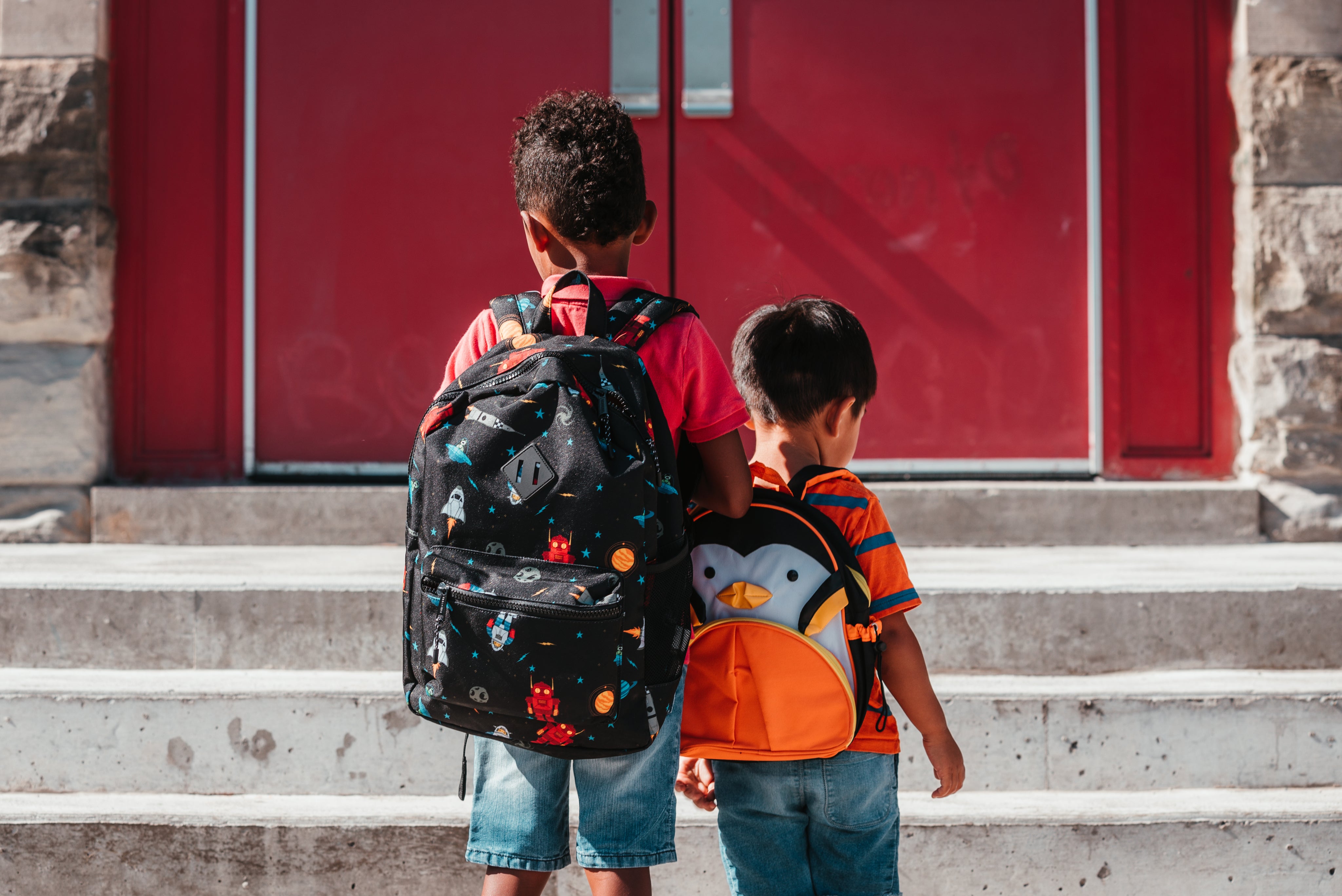Key takeaways
- Studying is a skill – we can’t just assume that children know how to study effectively without any prior experience
- Some children may struggle to study due to distractions, a lack of interest in the study, or because of differences in the way they learn
- There are plenty of ways that parents can help their children to develop good study habits, such as creating a dedicated study space, removing distractions, making a study schedule and allowing them to use study aids like earplugs to improve their concentration
It’s often just assumed that kids know how to study. And then parents and teachers alike get annoyed when they haven’t done their homework or prepared for a test.
But studying is a skill, just like learning a language or riding a bike. How can we expect children to know what the best way to study is if they’ve never done it before?
So, with that in mind, here are some practical and effective strategies to help children develop good habits and study smart – as well as some insights into why some children find it harder to study than others.
Why do some children struggle with studying?
Like we’ve already mentioned, studying can be challenging for some children simply because they haven’t been given any guidance on effective study techniques. Kids and teenagers may struggle to learn and retain information without the proper tools. That doesn’t mean they’re not capable of studying – they just need to be given some good studying tips!
A lack of awareness around studying techniques isn’t the only challenge kids face, though. Some other reasons children may find studying difficult include:
- A lack of interest: Most adults don’t love every single aspect of their job – and most kids don’t love every subject. If they’re not interested, it’s likely they’ll be less motivated to study.
- Distractions: YouTube, TikTok, Snapchat, Netflix… the distractions are endless! It’s easy to procrastinate when there are endless entertainment options at our fingertips.
- Workload: Kids have a lot on their plate, with multiple subjects to study, homework to complete, and tests and exams. For many young people, managing their workload and prioritizing tasks can feel overwhelming.
- Learning differences: Not everyone learns in the same way. Some kids might struggle to study simply because they’re trying to do it in a way that doesn’t suit them.
- Time management: If they’re trying to cram studying in around extracurricular activities, social events and family time, eventually something has to give – and more often than not, it’s studying that’s the first thing to go.
Tips on how to study
Now you know some of the reasons why your child might be struggling to study effectively, it should be easier to help them find their groove with strategies to suit their individual needs. Your child isn’t alone if they find studying difficult – and luckily, there are plenty of ways that you can help them to thrive during their study sessions.
Whether you’re looking for study skills for middle schoolers or elementary students, here are our best studying tips.
1. Create a dedicated study space
Children need a quiet, comfortable space to study to help them focus. If your child is in elementary school, then a space at the kitchen table is a good option. That way, you can sit close by to help them out if need be. But as your kid gets older, they might prefer to have their own private study space which they can customize themselves.
Whichever space you choose, whether it’s a corner of their bedroom, a designated area in the living room, or a study nook in the spare room, having a specific study space will help to put your child in the right frame of mind for learning. It should have all the study materials they need, as well as good lighting and ergonomic seating to help them stay comfortable when studying.
2. Organize study materials
Having a dedicated space for studying is no use if it’s constantly messy. Having a clean and organized study area can help children to focus better.
Ever heard the saying “clear desk, clear mind”? It might be a cliche, but there is truth in it. When a study space is clear and tidy, children are more likely to be focused on their learning, while if a space is cluttered and disorganized, it can make them feel stressed and anxious.
If your child is in elementary school, you might want to turn tidying up into a game, using a timer to see if they can declutter their space before it goes off, and encouraging regular clean-up routines such as tidying up after finishing their homework.
For older children, you could help them understand how a tidy environment can positively impact their learning, and discuss the advantages of having an organized space.
3. Remove distractions
Cell phones, TVs, even noisy siblings… Sometimes, out of sight, out of mind is the best policy when it comes to distractions! This is true for every child, but it’s especially important for children with ADHD.
By minimizing or eliminating distractions from their study space, children can fully focus on their studies. If they need to use their cell phone as a learning tool or for health reasons, then turning off notifications can mean they’re not tempted to start scrolling while in the middle of doing their homework.
Otherwise, leaving their cell phone outside of their study area and turning the television off can help them to maintain their focus and immerse themselves in their studies.
4. Make a study schedule
Neither you nor your child should expect studying to simply happen. Life gets in the way, and there are far more appealing things to be doing. Sometimes, the only way to get homework done is to schedule it into their day.
Planning your kids’ studying time will ensure that it gets done, and should minimize last-minute panics when they’ve forgotten about a deadline.
Most older children won’t respond well to being told exactly when to do their homework, so it’s best to sit down with them and work out a study schedule together that fits around their hobbies and family commitments.
5. Take regular breaks
No one can focus for hours on end. One of the best ways to study is to break it down into small, manageable chunks. This helps to keep children focused, engaged and refreshed.
Encourage them to take short breaks every 30-45 minutes to stretch, move around or do something relaxing like listening to their favorite songs or playing with the pet dog.
You could also try out different time management techniques, such as Pomodoro. This is when you work for 25 minutes at a time, followed by a 5 minute break. Your child can then use that 5 minutes to do whatever they want – from checking TikTok to grabbing a snack – as long as they get back to work after the 5 minute break is up.
Working in this way helps kids to keep their focus, manage their time, and break big tasks down into smaller ones so that no task feels too overwhelming.
6. Use study aids
Not every child learns in the same way. Some can take in information simply by reading, while others need to learn in a more visual way.
Visual aids like flashcards, diagrams and mind maps can make it easier for some children to understand and remember information. Some children will benefit from videos that explain information in a different way, while others will take information in best through repetition and recall.
Every child is different, so work together to find out which method works best for your child through trial and error.
And study aids extend beyond flashcards and mind maps. Earplugs can be useful for minimizing distractions and creating a more focused study environment. When the buzz of the environment around them is reduced, children will be better able to concentrate on the task at hand.
7. Seek help when needed
If your child is struggling with a particular subject or topic, encourage them to seek help – either from you or from their teacher.
Remind them that there’s no need to feel embarrassed, or ashamed to ask for assistance. Everyone needs a little help sometimes! It could be that their teacher has just the right tip to improve your children’s study strategies.
Helpful study tips for now – and the future
Whatever the reason your child struggles with studying, these tips should help to build more effective study habits that will help them to stay focused and thriving in school. There’s no one best way to study. Rather, you, your child and their teacher should work together to find out what works best for their individual needs and learning style.
Establishing good study habits now will set them up for success as they continue through their school journey – and for the rest of their lives!

Top Tips for Flying with Children: Essential Advice for Stress-Free Travel
Discover expert tips for flying with kids and ensure stress-free travel. Get essential advice for a smooth journey here.

Addressing noise disturbances: tips & laws
Learn how to address noise disturbances with practical tips and understand the laws that protect your peace. Essentia...

What To Look For In Noise Reduction Earplugs
Unlock expert tips for choosing the perfect noise-reduction earplugs! Discover key features to consider when choosing...




